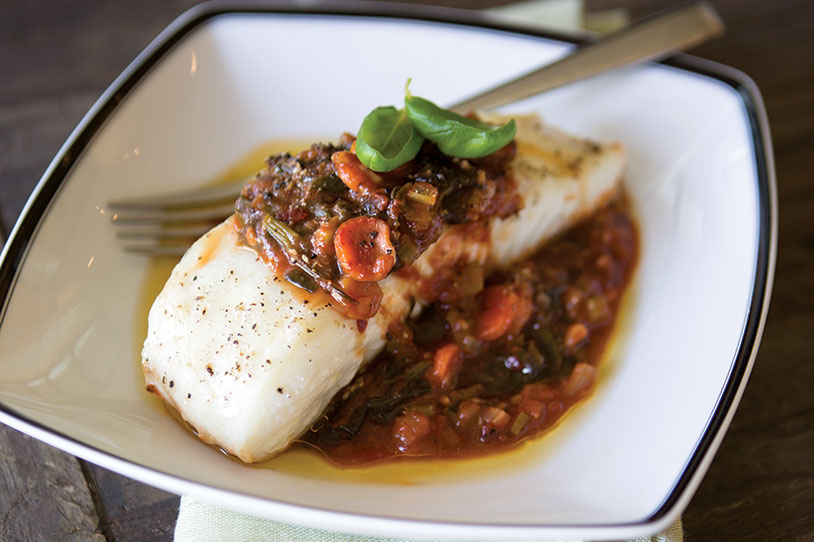Advertisement
Breathtaking Basil
The good-for-you herb

A sun-ripened tomato, drizzled with olive oil and garnished with fresh-snipped basil is definitely one of summer’s culinary highlights. It may also be one of its healthiest. Though basil is best known for its outstanding flavour, new research suggests it may also deliver some important health benefits.
In truth, basil has been used as a medicinal herb for millennia, and many cultures regard the herb with reverence. It seems there’s good reason for basil’s vaunted status. Nutritional science has revealed the aromatic plant is abundant in good-for-you nutrients such as vitamins A and K, manganese, copper, and folate. In addition, it’s teeming with disease-fighting antioxidants, flavonoids, and volatile oils. What’s more, preliminary evidence indicates this unique blend of nutrients may enhance health in surprising ways.
Advertisement
Cancer foe
Several lab studies have shown that the contents in certain basil leaf extracts not only inhibit the growth of certain cancers, but they also kill established cancer cells. Basil may also protect the body from oxidative stress and DNA damage, two factors believed to play a role in the genesis of the disease.
Advertisement
Heart friendly
It seems the fragrant herb can please the heart as well as the palate. Basil helps protect the cardiovascular system by helping to lower blood pressure and cholesterol, promote the relaxation of blood vessels, and suppress inflammatory enzymes in the body. Not surprisingly, researchers have concluded basil may be an ally in the treatment and prevention of heart disease and stroke.
Advertisement
Brain booster
Basil won’t just enhance your pasta; it may also help to enhance your cognitive function. Oral supplementation of the herb improved the locomotor skills, neuromuscular coordination, memory retrieval, and learning ability in adult mice. While it’s too soon to say whether basil will have the same beneficial effects in humans, it’s certainly not too soon to enjoy the health-enhancing herb more often!
Advertisement
Recipes
- Mediterranean-Style Halibut
- Tuscan Pasta Salad
- Nectarine Basil Crumble
- Citrus Basil Tofu with Ricotta Basil Baguette “Croutons”
Advertisement
Save it for later
You can air-dry basil in small batches, but it retains its flavour best when frozen. To freeze basil, simply pour a small amount of extra-virgin olive oil in a blender or food processor, add fresh basil leaves, and process until the mixture is paste-like. Put the mixture into ice cube trays and, once frozen, store the cubes in a freezer bag. You can then add the cubes to your favourite recipes and enjoy basil’s delicious flavour all year round!
Advertisement
Grow your own!
Growing basil at home—whether outdoors or indoors—is an easy and economical way to ensure you always have the flavourful herb at hand to enhance your basil recipes. Here are a few tips to help you become a basil gardener extraordinaire!
- Basil thrives on warmth and light. Plant seeds or starter plants outdoors in a sunny part of the garden in nutrient-rich soil after any danger of frost has passed. Indoors, plant starter plants in containers with adequate drainage and place the pots in a sunny, south-facing window.
- To prevent root rot, keep soil moist— not soggy.
- For healthy growth, fertilize once per month with organic fertilizer. Organic fertilizer helps maintain the proper pH levels in the soil (between 6 and 7.5).
- Pinch off any flowers that appear during growth to prevent them from “going to seed” and rendering the herb flavourless.
- When harvesting the plant, pinch off the stem just above a new leaf set.
- Harvest often—the more you pick, the more it will grow!




